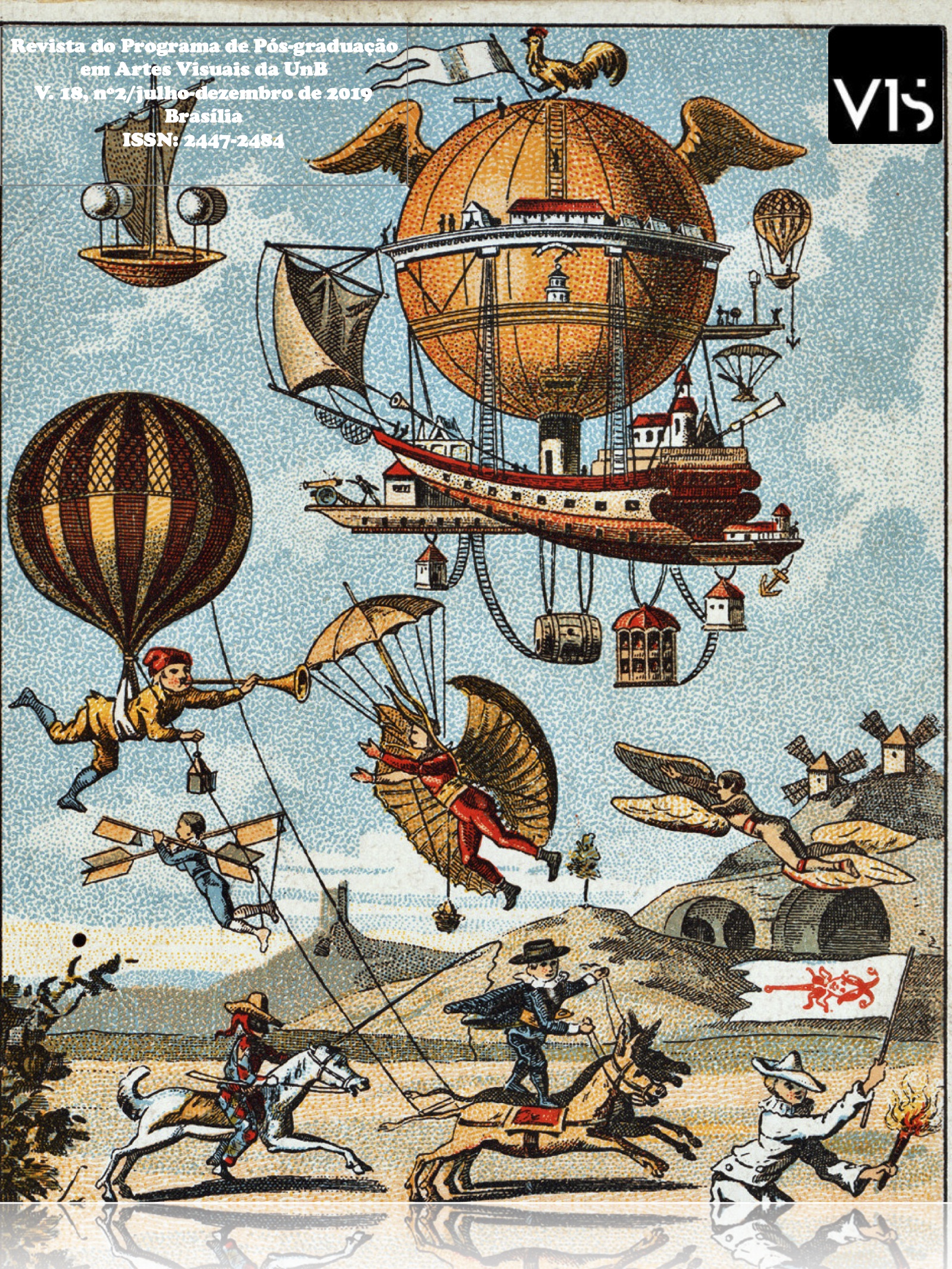Kuxa Kanema: imagem e utopia
DOI:
https://doi.org/10.26512/vis.v18i2.27339Abstract
Summary: The article aims to think of utopia as an ephemeral moment, shifting the concept, of european matrix, to an experience verified in the Mozambican context, in the 1970s, when the country reached its political self-determination after anti-colonial wars against the Portuguese army. The central object of the analysis is the film Kuxa Kanema, the birth of cinema, produced by Margarida Cardoso in 2003, which enacts the passage from utopia to dystopia on the horizon of a national political project that saw the production of images as a strategy of unifying a torn country.
Downloads
References
MBEMBE, Achille. Necropolítica: biopoder, soberania, estado de exceção, política de morte. Tradução de Renata Santini. Rio de Janeiro: n-1 edições, 2018.
MCCOUBREY, Peter. Zizek! (2005). Disponível em https://www.youtube.com/watch?v=MfV1O20OJi4
QUADROS, António. Eu, O Povo. Maputo: ed. Frelimo, 1975.




